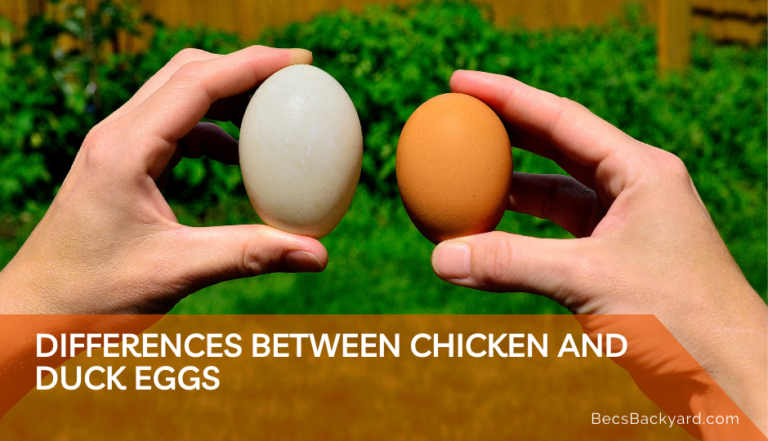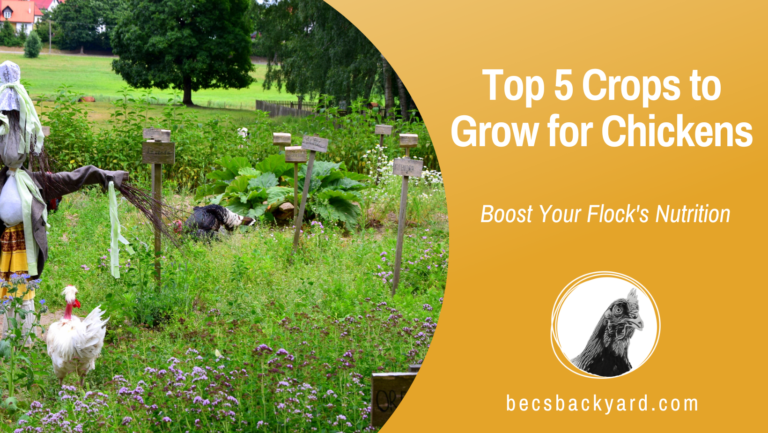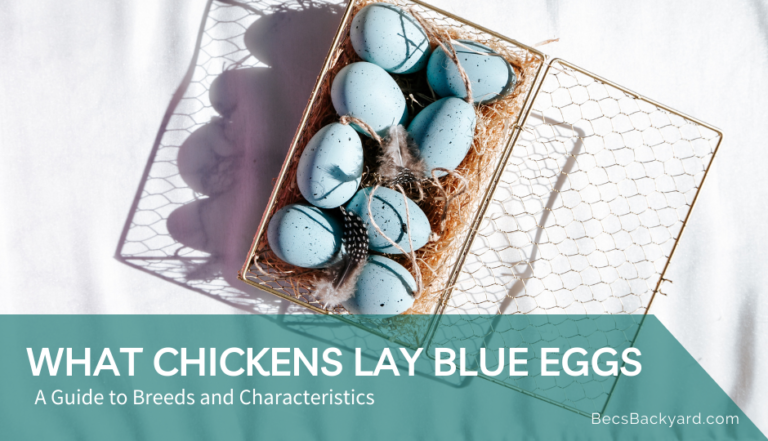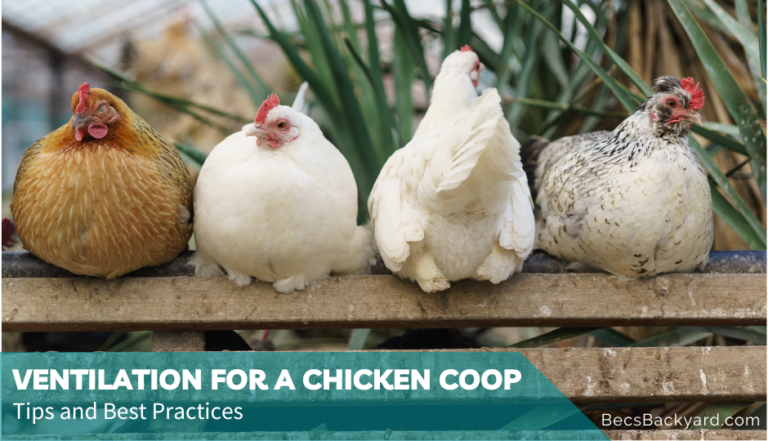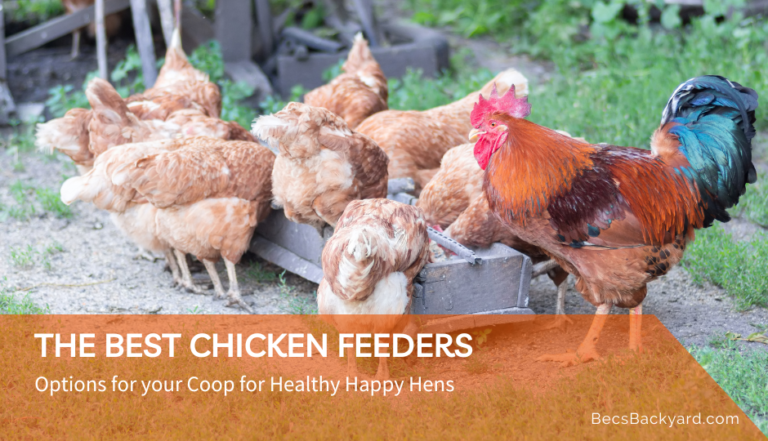Best Vegetables for Chickens: A Guide to Healthy and Nutritious Feed

If you’re a backyard chicken owner, you know how important it is to maintain a healthy diet for your flock. Feeding your chickens a balanced diet that includes a variety of vegetables is crucial for their overall health and wellbeing. Vegetables provide essential nutrients, vitamins, and minerals that your chickens need to thrive.
When it comes to choosing the best vegetables for chickens, it’s important to consider their nutritional value. Leafy greens like kale, collard greens, and cilantro are excellent sources of vitamins and minerals that support bone and feather health. Root vegetables like turnips and carrots provide a good source of carbohydrates and fiber, while also containing essential vitamins and minerals. Broccoli is also a great option, as it is low in fat and high in fiber and vitamins. By incorporating a variety of vegetables into your chicken’s diet, you can ensure that they are getting the nutrients they need to maintain a healthy and balanced diet.

Importance of Feeding Chickens Vegetables
Feeding chickens a balanced diet is crucial for their health and overall well-being. While most chicken owners focus on providing their birds with grains and protein sources, vegetables are also an essential component of a healthy diet for chickens. Here are some reasons why feeding chickens vegetables is important:
Provides Nutritional Value
Vegetables are rich in vitamins, minerals, and antioxidants that are essential for chickens to maintain good health. For example, leafy greens like kale and spinach are rich in calcium, which is important for strong bones and eggshell formation. Vegetables like carrots, sweet potatoes, and pumpkins are high in beta-carotene, which is essential for healthy eyesight.
Helps with Digestion
Vegetables are also a great source of fiber, which is important for maintaining healthy digestion in chickens. Vegetables like broccoli, cauliflower, and cabbage are high in fiber and can help keep the digestive system functioning properly. Additionally, vegetables like beets and carrots contain natural prebiotics that can help promote the growth of beneficial gut bacteria.
Reduces Inflammation
Many vegetables contain anti-inflammatory compounds that can help reduce inflammation in chickens. Vegetables like garlic and ginger are natural anti-inflammatories that can help reduce swelling and pain. Additionally, vegetables like leafy greens and cruciferous vegetables contain sulfur compounds that can help reduce inflammation and promote overall health.
Provides Energy
Vegetables are also an excellent source of energy for chickens. Vegetables like sweet potatoes and carrots are high in carbohydrates, which are essential for providing chickens with the energy they need to stay active and healthy. Additionally, vegetables like leafy greens and broccoli are high in iron, which is important for maintaining healthy blood and providing chickens with the energy they need to stay active.
In conclusion, feeding chickens vegetables is an important part of providing them with a balanced diet. Vegetables provide chickens with essential vitamins, minerals, and antioxidants that are important for their health, as well as fiber, which is important for maintaining healthy digestion. Additionally, vegetables can help reduce inflammation, provide energy, and promote overall health and well-being in chickens.
Best Vegetables for Chickens
When it comes to feeding your chickens, providing them with a variety of vegetables can be a great way to keep them healthy and happy. Vegetables are a great source of essential vitamins and minerals that can help your chickens maintain a strong immune system and healthy feathers. In this section, we’ll explore some of the best vegetables you can feed your chickens.
Leafy Greens
Leafy greens are a great source of nutrients for chickens. They are high in vitamins A and K and contain antioxidants that can help boost your chicken’s immune system. Some of the best leafy greens for chickens include kale, lettuce, spinach, Swiss chard, collard greens, and mustard greens. You can chop them up and mix them with their regular feed or give them as a treat.
Cruciferous Vegetables
Cruciferous vegetables are another great option for chickens. They are high in vitamins C and K and contain antioxidants that can help boost your chicken’s health. Some of the best cruciferous vegetables for chickens include broccoli, cabbage, cauliflower, and Brussels sprouts. You can chop them up and mix them with their regular feed or give them as a treat.
Root Vegetables
Root vegetables are a great source of fiber and other essential nutrients for chickens. They are also a great way to keep your chickens entertained, as they will love to scratch and peck at them. Some of the best root vegetables for chickens include carrots, potatoes, sweet potatoes, and beets. You can chop them up and mix them with their regular feed or give them as a treat.
Other Vegetables
In addition to leafy greens, cruciferous vegetables, and root vegetables, there are many other vegetables that your chickens will love. Some of the best options include corn, peas, asparagus, and squash. You can also give your chickens citrus fruits, such as oranges and lemons, as a treat. Just be sure to remove any seeds, as they can be harmful to your chickens.
When feeding your chickens vegetables, it’s important to remember to wash them thoroughly and remove any parts that are not safe for chickens to eat. You can also let your chickens forage for vegetables in a raised bed or garden. Some chicken-friendly plants that you can grow near your chicken coop include parsley, mint, thyme, sage, oregano, amaranth, radish tops, plantain, and nasturtiums. Lastly, remember to always provide your chickens with plenty of fresh water and a balanced diet.
Other Foods for Chickens
In addition to vegetables, there are other types of food that you can feed your chickens to provide them with the necessary nutrients for a healthy diet. Here are some examples of other foods that you can feed your chickens:
Fruits
Fruits are a great source of vitamins and minerals for your chickens. Some fruits that you can feed your chickens include apples, bananas, grapes, and watermelon.
Protein Sources
Protein is essential for your chickens’ growth and development. Some protein sources that you can feed your chickens include insects, fish, and dairy. You can also feed your chickens cooked eggs, but be sure to crush up the eggshells and feed them to your chickens as well to provide them with calcium.
Remember to always provide your chickens with fresh, clean water and to avoid feeding them anything that is toxic or harmful to their health. By providing your chickens with a varied diet, you can help ensure that they are healthy, happy, and productive.
Feeding Vegetables to Chickens
Feeding your chickens vegetables is a great way to provide them with a balanced diet and keep them healthy. Vegetables are rich in vitamins, minerals, and antioxidants that are essential for your chickens’ growth, egg production, and hatchability. Here are some tips on feeding vegetables to your chickens:
Choose the best vegetables for Chickens
Not all vegetables are suitable for chickens. Some vegetables, such as onions, garlic, and avocados, are toxic to chickens and should be avoided. However, there are many safe and nutritious vegetables that your chickens will love. Some of the best vegetables for chickens include:
- Leafy greens: Lettuce, kale, spinach, and chard are all great sources of vitamins A, C, and K, as well as calcium and iron.
- Cruciferous vegetables: Broccoli, cauliflower, and cabbage are rich in vitamins C and K, as well as antioxidants that boost your chickens’ immune system.
- Root vegetables: Carrots, sweet potatoes, and beets are high in beta-carotene, which helps maintain healthy skin and eyesight.
- Squashes: Pumpkins and winter squashes are rich in vitamins A and C, as well as fiber and potassium.
- Peas and beans: Peas, green beans, and snap beans are excellent sources of protein and fiber.
Don’t overfeed vegetables
While vegetables are a healthy addition to your chickens’ diet, they should not make up more than 10% of their total food intake. Too much vegetable can lead to digestive problems and reduced egg production. Make sure to provide your chickens with a balanced diet that includes plenty of protein, such as chicken feed, as well as access to fresh water and clean bedding.
By following these tips, you can provide your chickens with a nutritious and delicious diet that will keep them healthy and happy.
Keeping Chickens Safe While Foraging
When allowing your chickens to forage, it’s important to keep them safe from predators and other dangers. Here are some tips to help keep your chickens safe while foraging:
Fencing
Make sure your chicken’s foraging area is fenced in to protect them from predators. A sturdy fence that is at least six feet tall with a wire mesh at the bottom will help keep predators out. This will also prevent chickens from wandering too far away from their coop.
Predators
Predators like foxes, raccoons, and coyotes can be a major threat to chickens. To keep your chickens safe, try to avoid leaving food out overnight and make sure to lock up your chickens at night. You can also use motion-activated lights and alarms to scare off predators.
By following these tips, you can help keep your chickens safe while allowing them to forage. Remember to always keep an eye on your chickens and make sure they have access to clean water and shelter.
Conclusion
In summary, feeding your chickens a variety of vegetables is an excellent way to keep them healthy and happy. By incorporating vegetables into their diet, by allowing them the opportunity to forage for supplementary greens, you can provide them with essential nutrients and vitamins that they need to thrive.
Remember to always research the vegetables before feeding them to your chickens. Some vegetables, such as avocados, can be toxic to chickens and should be avoided.
In addition to the vegetables listed in this article, there are many other resources available online that can help you determine which vegetables are best for your chickens. By doing your research and providing your chickens with a healthy and varied diet, you can ensure that they live long and happy lives.

